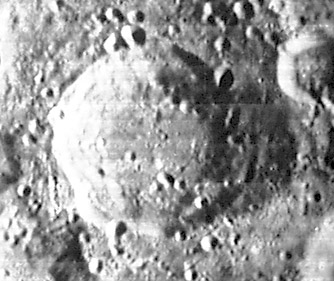Adams
Contents
- 1 Adams
- 2 Table of Contents
Adams
|
Lat: 31.86°S, Long: 68.34°E, Diam: 63.27 km, Depth: 4.19 km, Rükl: 69, Nectarian |
Table of Contents
[#Adams Adams]
[#Adams-Images Images]
[#Adams-Maps Maps]
[#Adams-Description Description]
[#Adams-Description-Elger Elger]
[#Adams-Description-Wikipedia Wikipedia]
[#Adams-Additional Information Additional Information]
[#Adams-Nomenclature Nomenclature]
[#Adams-LPOD Articles LPOD Articles]
[#Adams-Bibliography Bibliography]
[#Adams-A certain J. Adams on page 162 of T.W.Webb's Celestial Objects for Common Telescopes, Volume 1; chapter THE MOON A certain J. Adams on page 162 of T.W.Webb's Celestial Objects for Common Telescopes, Volume 1; chapter THE MOON]
[#Adams-Adams in the Sourcebook Project (William R. Corliss) Adams in the Sourcebook Project (William R. Corliss)]

LO-IV-38-h3
Images
LPOD Photo Gallery Lunar Orbiter Images Apollo Images
Something of Adams is noticeable on several orbital oblique south-looking Mapping/Metric Fairchild camera frames made during the mission of Apollo 15. Of these, frame AS15-M-2517 shows Adams very near the central part of the curved horizon. Crater Legendre is immediately "rightward" of it.
Research Danny Caes
Maps
(LAC zone 98C3) LAC map Geologic map
Description
Elger
See Legendre.
Wikipedia
Additional Information
- IAU page: Adams
- Depth data from Kurt Fisher database
- Westfall, 2000: 4.19 km
- Satellite crater Adams B is on the ALPO list of bright ray craters.
- Satellite crater Adams B is on the ALPO list of banded craters
- Central peak height
- Wood, 1971: 0.12 km - tychocrater tychocrater Feb 20, 2008
Nomenclature
- The IAU citation indicates that this name currently honors three people:
- John Couch Adams; British astronomer (1819-1892);
- Charles Hitchcock Adams; American astronomer (1868-1951); and
- Walter Sydney Adams; American astronomer (1876-1956).
- This crater is almost unique (see also Wright) in honoring three apparently unrelated astronomers with a common last name. John's most famous accomplishment was his careful, and correct, prediction of the location of Neptune, for which he was later much honored but with which, at the time, he was unable to impress the British astronomical authorities. Although he was not an active lunar observer, he was (as Wilkins and Moore point out) an outstanding mathematician and greatly improved the "lunar theory." Charles (the second honoree) was a California insurance broker most noted for his involvement with the Astronomical Society of the Pacific, a highly successful collaboration between amateurs and professionals. He is also noted as the father of Ansel Adams, the photographer (who, although he is famous for several landscapes with rising Moons, is not honored here). Walter (the third honoree) was an eminent professional astronomer and one-time director of the Mount Wilson Observatory, interested primarily in stellar and planetary spectra. He was the 1928 Bruce Medalist of the Astronomical Society of the Pacific, and extensive links to information about him can be found there.
- Adams was catalog entry 4726 in Mary Blagg's Collated List, where the name was found in Neison, 1876 (Schmidt, following Beer and Mädler, had called it Legendre C).
- According to Whitaker, the naming after John Couch Adams was introduced by Birt and Lee in the 19th century.
- Adams entered the IAU Nomenclature as part of Named Lunar Formations.
- The two American astronomers were added as honorees in Menzel, 1971.
LPOD Articles
Bibliography
A certain J. Adams on page 162 of T.W.Webb's Celestial Objects for Common Telescopes, Volume 1; chapter THE MOON
Who could have been this J. Adams who noticed "two beams of light, resembling searchlights" on the shadowed floor of Plato near local sunrise?
Was it John Couch Adams?
Adams in the Sourcebook Project (William R. Corliss)
- In Mysterious Universe, a handbook of astronomical anomalies (1979) :
- Page 64: The Closing of a Famous Astronomical Problem (W.W.Campbell, Popular Science Monthly, 1909).
- Page 534: New Planet may be added to the Sun's Family of Nine (Science Newsletter, 1942).
And also a certain Robert M. Adams:
- Page 227: Another Flashing Lunar Mountain? (at Mare Crisium) (Strolling Astronomer, 1956).
Named Features -- Prev: Acosta -- Next: Aepinus
This page has been edited 1 times. The last modification was made by - tychocrater tychocrater on Jun 13, 2009 3:24 pm - afx3u3